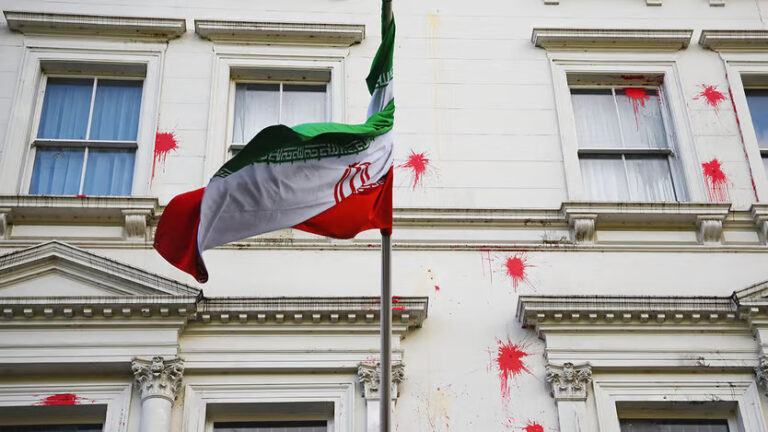Jo Becker and Ron Nixon, The New York Times
The federal government has awarded more than $107 billion in contract payments, grants and loans over the last decade to foreign and multinational U.S. companies while they were doing business in Iran, despite Washington’s efforts to discourage investment there, 
records show.
That includes nearly $15 billion in benefits paid to companies that defied U.S. sanctions law by making large investments that helped Iran develop its oil and gas reserves.
For years, the United States has been pressing other nations to join its efforts to squeeze the Iranian economy, in hopes of reining in Tehran’s nuclear ambitions.
But a New York Times analysis of federal records, company reports and other documents shows that both the Obama and Bush administrations have sent mixed messages when it comes to doing business in Iran, rewarding companies whose commercial interests conflict with U.S. security goals.
More than two-thirds of the government money went to companies doing business in Iran’s energy industry – a huge source of revenue for the Iranian government and a stronghold of the powerful Islamic Revolutionary Guards Corps, which oversees Iran’s nuclear and missile programs.
In recent months, a number of companies have decided to withdraw from Iran, because of a combination of pressure by the U.S. and other Western governments, “terrorism free” divestment campaigns by shareholders, and the difficulty of doing business with Iran’s government.
The Obama administration points to that record, saying that it has successfully pressed allied governments and even reached out directly to corporate officials to dissuade investment in Iran, particularly in the energy industry.
“We are very aggressive, using a range of tools,” said Denis McDonough, chief of staff to the National Security Council.
The government can, and does, bar U.S. companies from most types of trade with Iran, under a broad embargo that has been in place since the 1990s. But, as The Times’ analysis illustrates, multiple administrations have struggled to exert U.S. authority over companies outside the embargo’s reach – foreign companies and the foreign subsidiaries of American ones.
Indeed, of the 74 companies The Times identified as doing business with both the U.S. government and Iran, 49 continue to do business there with no announced plans to leave.
One of the government’s most powerful tools to influence the behavior of companies beyond the jurisdiction of the embargo is the Iran Sanctions Act, devised to punish foreign companies that invest more than $20 million in a given year to develop Iran’s oil and gas fields. But in the 14 years since the law was passed, the government has never enforced it, in part for fear of angering U.S. allies.
Nineteen states – including New York, California and Florida – have rules that bar or discourage their pension funds from investing in companies that do certain types of business in Iran. Congress is considering legislation that would have the federal government follow suit, by mandating that companies that invest in Iran’s energy industry be denied federal contracts.
Rep. Ron Klein, D-Fla., who wrote the contracting provision moving through Congress, said it offered a way forward with or without international agreement on sanctions.
“We need to send a strong message to corporations that we’re not going to continue to allow them to economically enable the Iranian government to continue to do what they have been doing,” Klein said.











+ There are no comments
Add yours